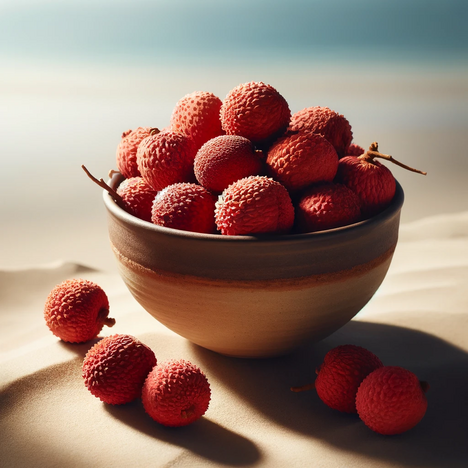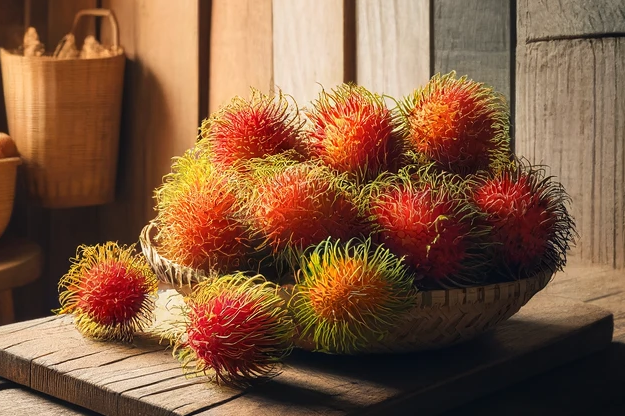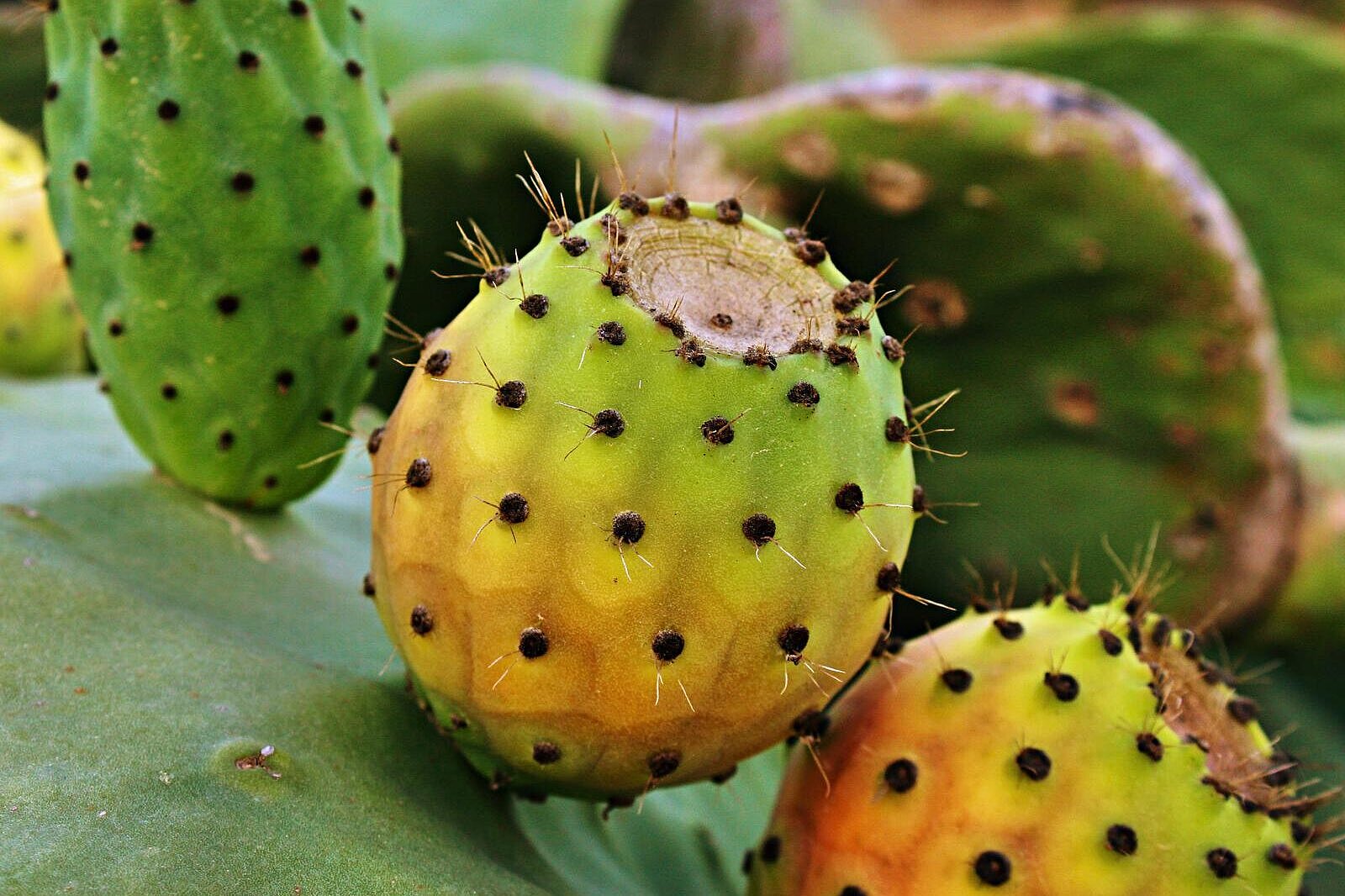Lychee

The mysterious world of lychee trees
The lychee tree, also known as Litchi chinensis, is an evergreen tree from the soap tree family known for its sweet and juicy fruit. However, before we get into the details of how this exotic tree can affect our dogs, let's look at the different parts of the litchi tree and their properties:
- The fruit: Lychees are known for their sweet flavor and juicy texture. They are very popular with humans, but are they safe for dogs?
- The skin: The hard, reddish skin of the lychee fruit is not edible and should be removed from the fruit before it is eaten.
- The leaves: Green and shiny, they are an essential part of the tree, but their effect on dogs is not as well known.
- The seed: Located in the center of the fruit, the seed is known to contain certain substances that can be potentially harmful to health.
Are lychee trees poisonous to dogs?
Now that we know the components of the lychee tree, it's time to answer the question: are lychee trees, and in particular their fruit, poisonous to dogs?
The fruit
When eaten in moderation, the flesh of the lychee is not poisonous to dogs. However, it does contain sugar, which can lead to stomach upset, obesity and in some cases diabetes if consumed in excess. It is therefore advisable to feed lychees only in small quantities and not to make them the main part of your dog's diet.
The skin and the seed
The skin and seed of the lychee can be problematic for dogs. The hard skin can pose a choking hazard or irritate the digestive tract if swallowed. The seed contains amygdalin, a substance that can be converted to cyanide in the body, which is potentially toxic. Therefore, dogs should not have access to the peel or seeds of the lychee fruit.
The leaves
There is little specific research on the effects of lychee leaves on dogs. However, as a general rule, plant leaves may contain irritants that can cause gastrointestinal upset. If in doubt, it is best to avoid your dog's contact with the leaves of the lychee tree.
Exercise a healthy degree of caution
While the lychee fruit may be safe for dogs in small amounts, the peel and seed are potentially dangerous. The leaves of the lychee tree could also cause problems, although specific information is lacking. As a responsible dog owner, it is important to exercise a healthy level of caution and ensure that your dog does not have unsupervised access to lychee trees or their fruit.
If you notice any signs of hypersensitivity or poisoning in your dog, you should see your vet immediately. We are not a substitute for a vet, but we try to be as accurate as possible. Every dog reacts differently and we recommend you get a second opinion or consult your vet if in doubt.
Stay healthy and take good care of your four-legged friend!😊
Similar to Lychee
Rambutan is a tropical fruit that is mainly native to Southeast Asia. It belongs to the soap tree family, which also includes the lychee and the longan. The fruit is known for its unique appearance...
The longan fruit, often referred to as the "dragon's eye", is popular for its sweet, aromatic taste. But is it also a safe snack for dogs? The longan fruit itself contains sugars, vitamins and...
Before we turn to the effects of mangosteen on dogs, let's take a look at what makes this fruit so special. Mangosteen, also known as the "queen of fruits", comes from the evergreen mangosteen tree....
Prickly pear has many positive properties that can also be beneficial for dogs. On the one hand, it is rich in vitamins, minerals and antioxidants, which can strengthen the immune system and protect...



